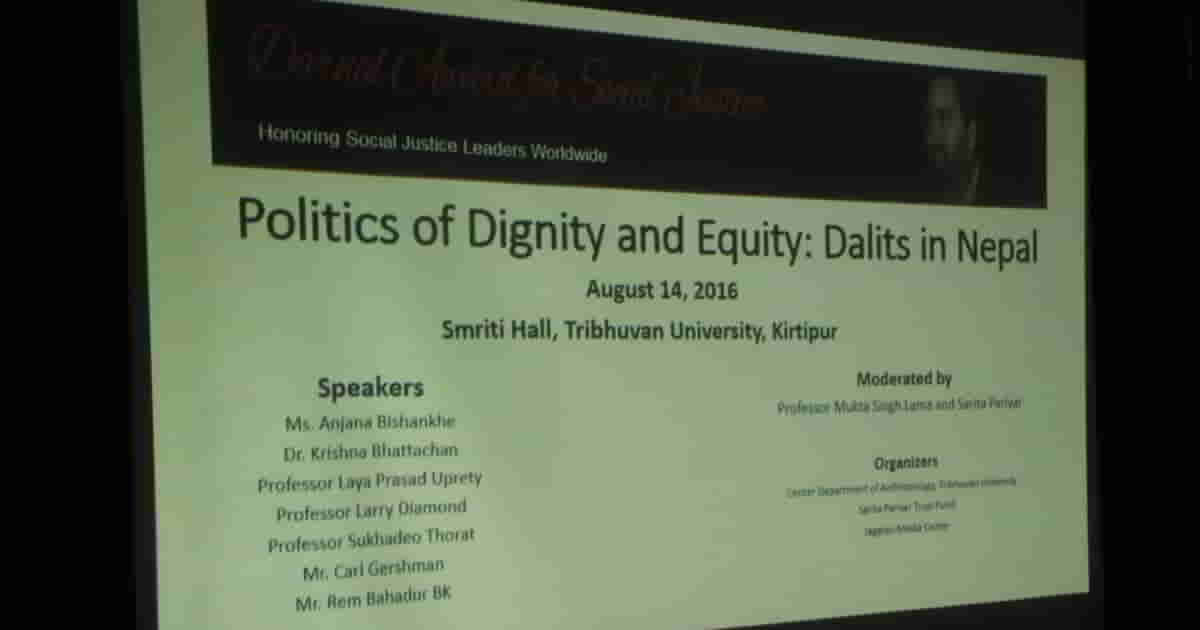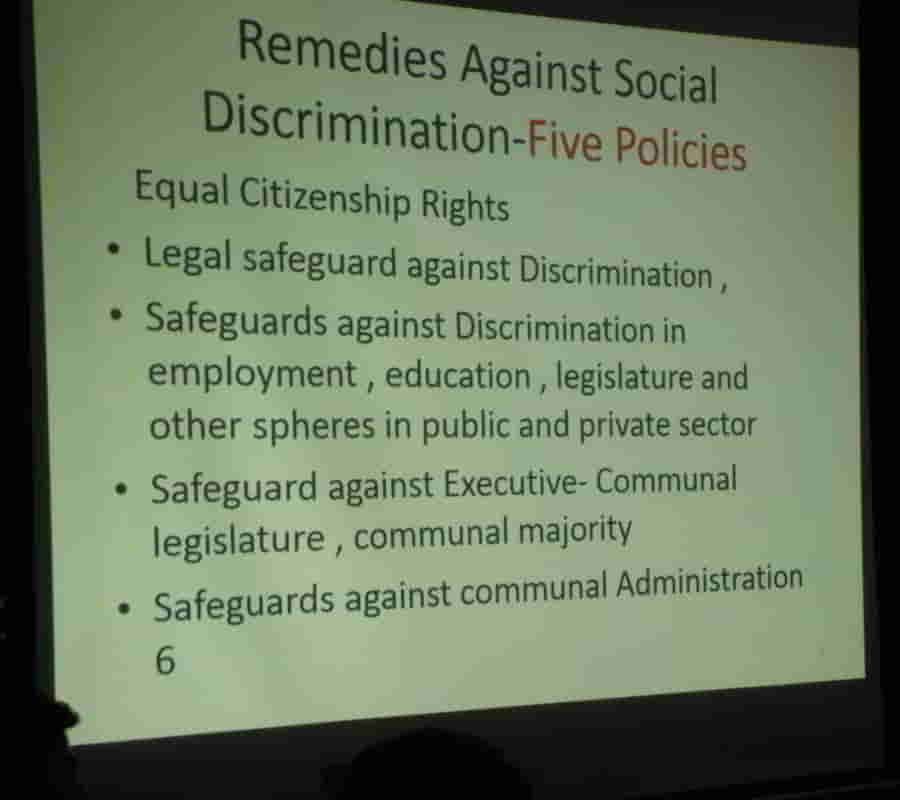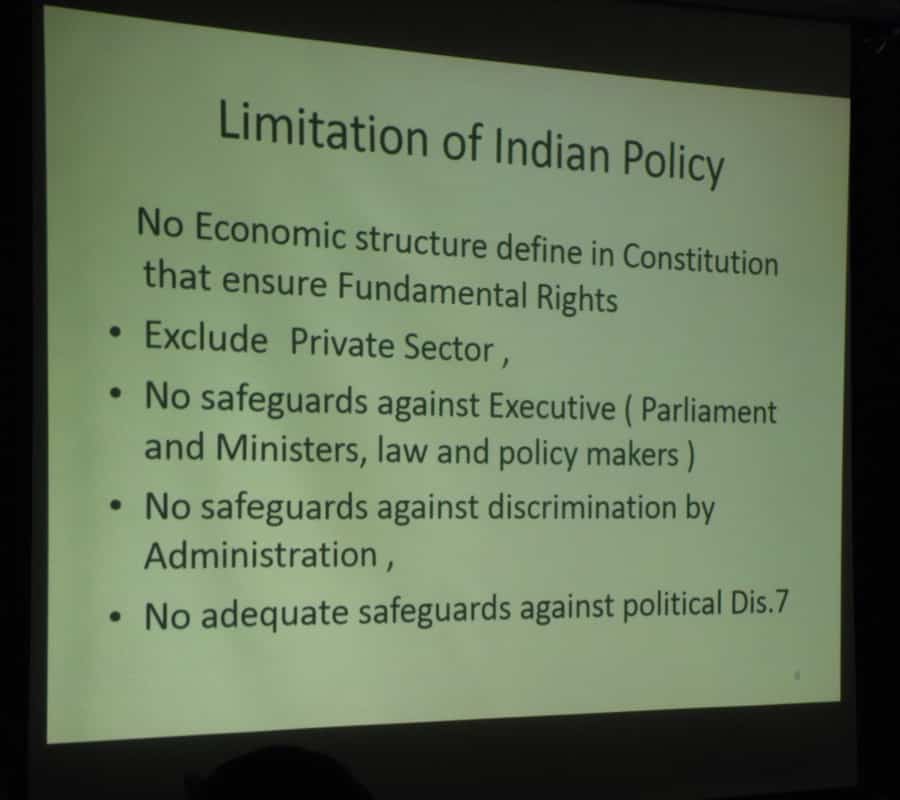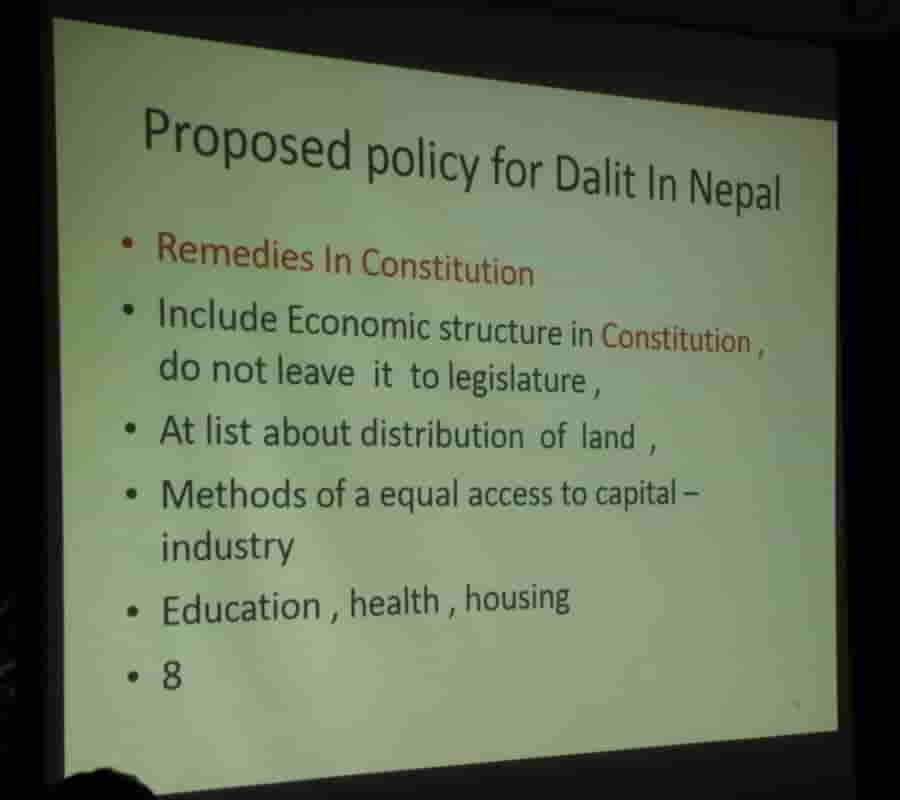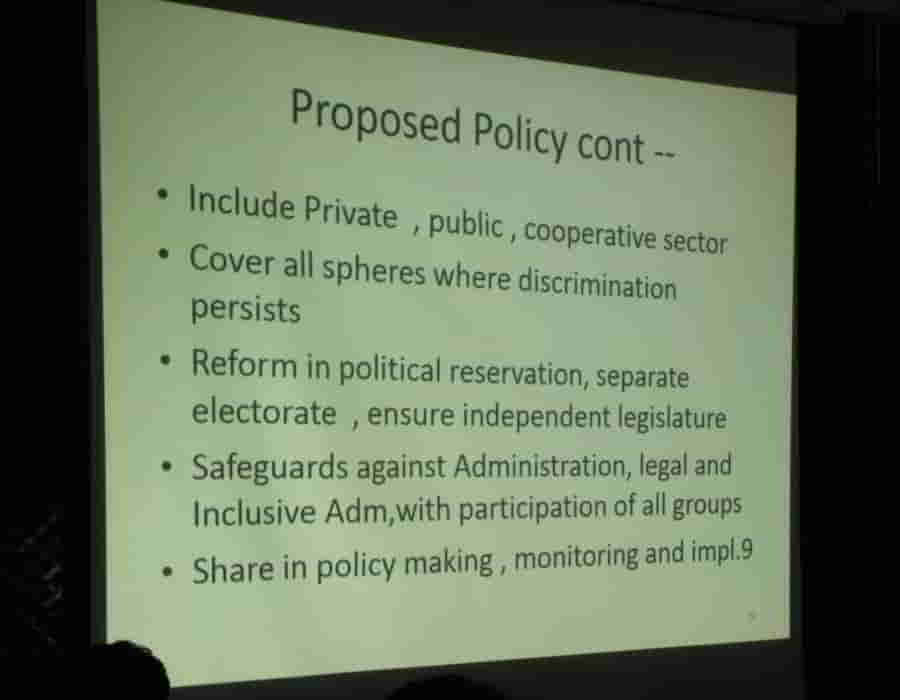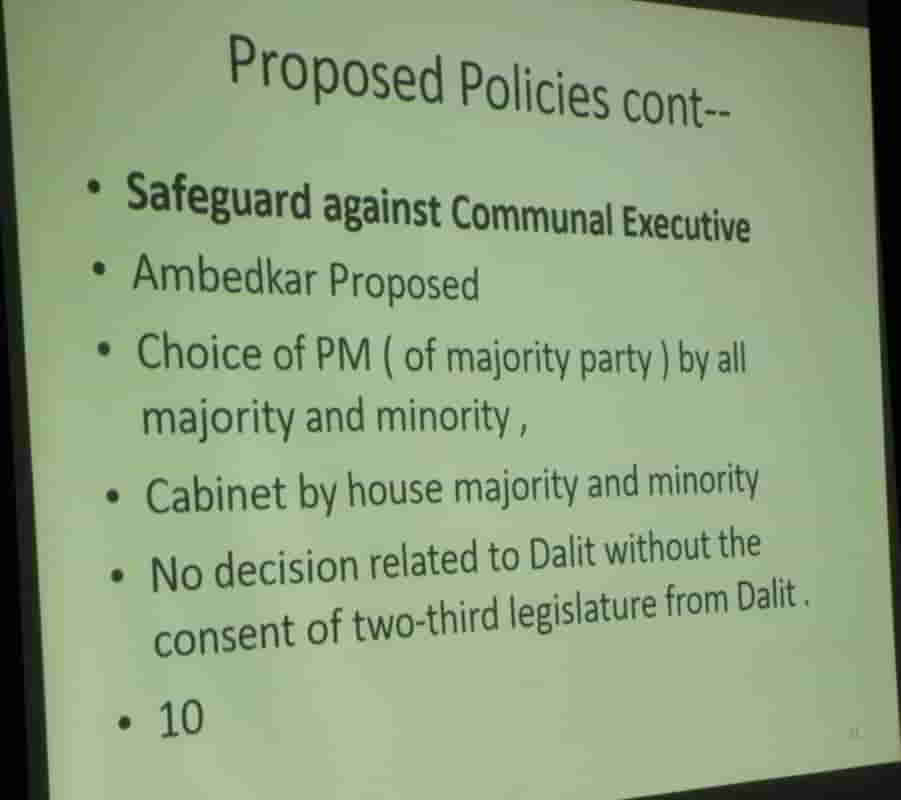Last Sunday, August 14, I attended the above symposium. (You can find photos from the symposium here.) The symposium was one of a few different events leading up to the 2016 Darnal Award for Social Justice.
One of the speakers there was Professor Sukhadeo Thorat. The Professor’s brief bio in the information pamphlet about the symposium, reads thus:
[He] is the Chairman of the Indian Council of Social Science Research. Since 2014, he has been associated with Jawaharlal Nehru Univeristy as Professor Emeritus. He was a professor of economics at JNU, chairman of University Grant Commission, and Director of Indian Institute of Dalit Studies. He has been honored with the Padmashree Award by the Government of India and Dr. Bhimrao Ambedkar Ratna Award by the Government of National Capital Territory of Delhi.
He presented the issues Dalits, the lowest of the lowest castes, in Nepal face and some of the remedies. Because of the importance of his presentation, I have taken the liberty of reproducing parts of it here.
Remedies Against Social Discrimination – Five Policies
- Equal Citizenship Rights
- Safeguards against Discrimination in employment, education, legislature and other spheres in public and private sector
- safeguard against Executive-Communal legislature, communal majority
- Safeguard against communal Administration
Limitation of Indian Policy
- No economic structure defined in Constitution that ensure Fundamental Rights
- Exclude Private Sector
- No safeguards against Executive (Parliament and Ministers, law and policy makers),
- No safeguards against discrimination by Administration,
- No adequate safeguards against political Dis.
Proposed policy for Dalit in Nepal
- Remedies In Constitution
- Include Economic structure in Constitution, do not leave it to legislature.
- At list about distribution of land,
- Methods of a equal access to capital – industry
- Education, health, housing
Proposed policy cont–
- Include Private, public, cooperative sector
- Cover all spheres where discrimination persists
- Reform in political reservation, separate electorate, ensure independent legislature
- Safeguards against Administration, legal and Inclusive Adm, with participation of all groups
- Share in policy making, monitoring and impl.
Proposed Policies cont–
- Safeguard against Communal Executive
- Ambedkar Proposed
- Choice of PM (of majority party) by all majority and minority,
- Cabinet by house majority and minority
- No decision related to Dalit without the consent of two-third legislature from Dalit
The non-inclusive system of governance of Nepal is not a democracy, and as such will fail to create a just society.
We have a long way to go before our fledgling democracy become fully inclusive and functions as one. But until such time, we’ll have to continue fighting for the rights — some of them just really really basic BASIC rights — of Dalits as well as the rest of the historically marginalized and disenfranchised citizens of the country, all of whom, when combined together, constitute a majority of the population!
References:
Caste discrimination stronger in Nepal. Interview with the Professor in which he touches on many of the topics he presented.

